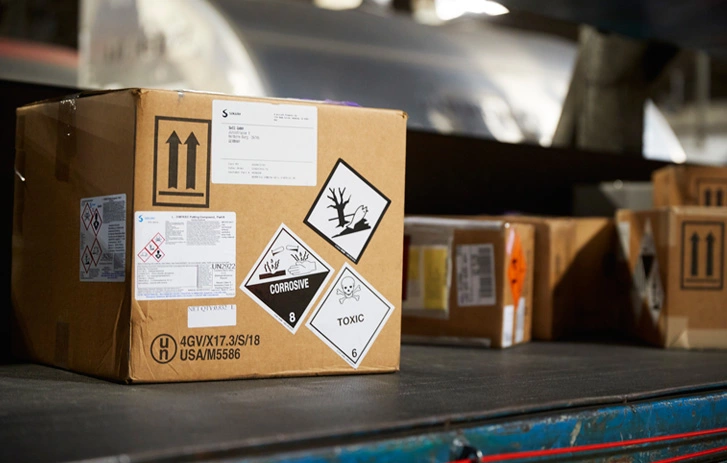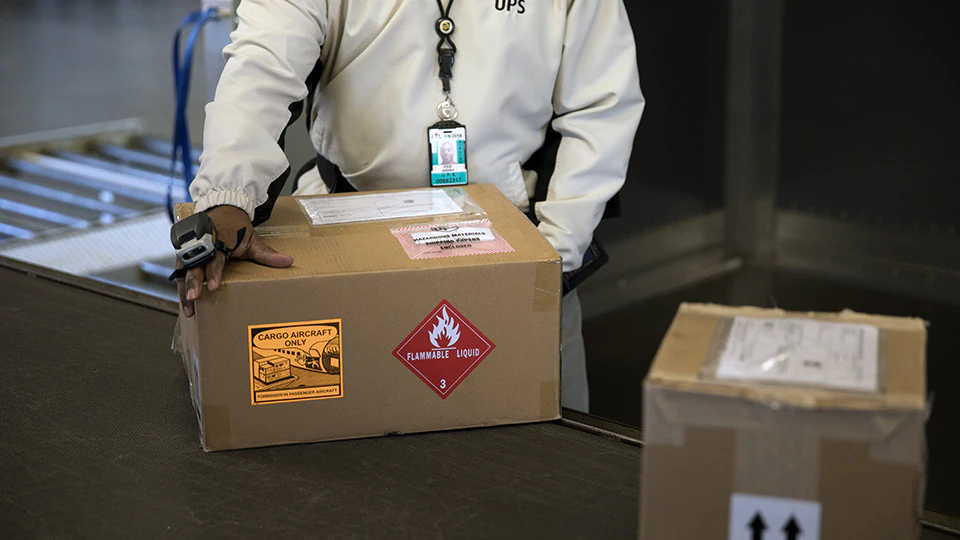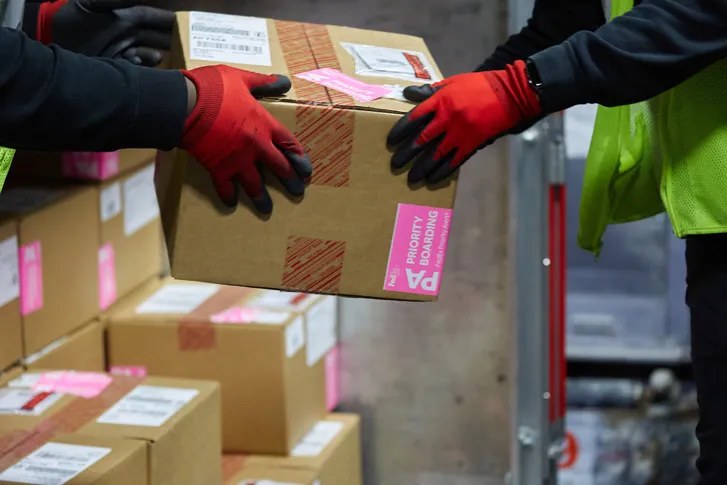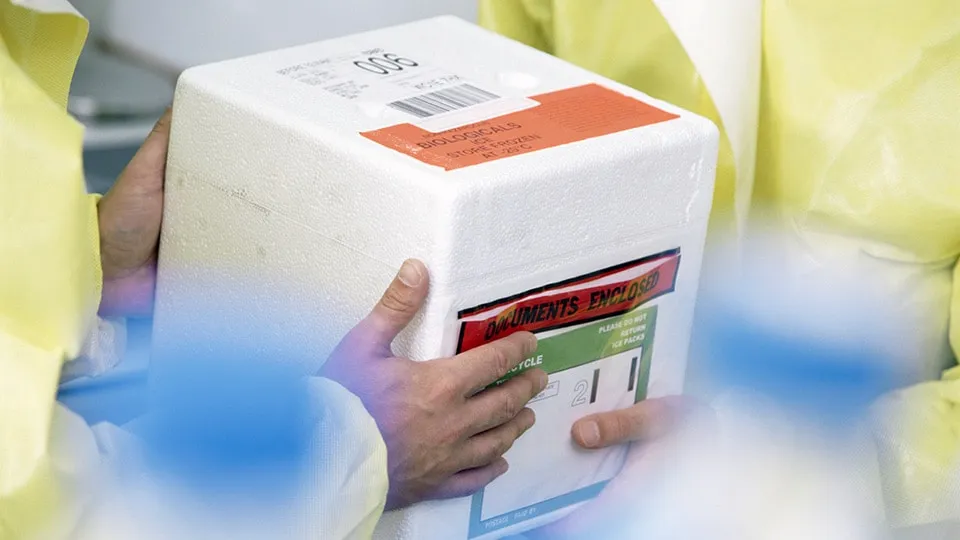UPS Shipping Restrictions and Prohibited Items
Shipping plays a vital role in today’s interconnected world, enabling the movement of goods across vast distances. Among the many shipping service providers available, United Parcel Service (UPS) stands out as a prominent name known for its global reach and reliable logistics solutions. In this article, we will shed light on the UPS shipping restrictions that you need to be aware of.

What are UPS Shipping Restrictions?
Shipping restrictions are guidelines and regulations that determine what can and cannot be shipped through a specific shipping carrier, such as UPS.
These restrictions are in place to ensure compliance with legal requirements, maintain safety standards, and protect the environment.
They cover various aspects of the shipping process, including the types of items that are prohibited or require special handling, packaging, or documentation.
These restrictions can vary depending on the nature of the item, its potential risks, and the destination country or region.
READ ALSO!!!
- How do I Request a Refund for UPS Express?
- Can I Track My UPS Mail Package Without a Tracking Number?
- How Do I Track a UPS Package if it’s Being Rescheduled for Delivery?
- How Do I Track My UPS Package Using a Tracking ID?
What Areas Are Affected by UPS Shipping Restrictions?

UPS has implemented various shipping restrictions to ensure compliance with legal, safety, and security requirements.
Here are some common examples of items that may be subject to shipping restrictions with UPS:
1. Prohibited Items
Certain items, such as explosives, flammable materials, toxic substances, firearms, ammunition, illegal drugs, and perishable goods (unless properly packaged and labeled), are not permitted for shipment by UPS.
2. Dangerous Goods
UPS adheres to international regulations for shipping dangerous goods, including hazardous materials, chemicals, gases, corrosives, and other substances that pose a risk during transportation.
Shipping hazardous materials typically requires proper packaging, labeling, and documentation.
3. Restricted Items
Certain items may have restrictions on shipping due to legal or logistical reasons.
These may include alcohol, tobacco products, prescription medications, live animals, perishable foods, and valuable items.
Shipping these items may require additional documentation and compliance with specific regulations.
4. International Shipping
When shipping internationally, UPS follows the import/export regulations of various countries.
Specific restrictions may apply to items such as firearms, animal products, plant materials, or cultural artifacts.
It is essential to research and comply with the specific rules of the destination country.
5. Size and Weight Limits
UPS has specific size and weight restrictions for packages, which vary based on the service type and destination.
It is important to ensure that your package meets the size and weight requirements for the chosen UPS service.
6. Lithium Batteries
Shipping lithium batteries, especially in large quantities, requires compliance with specific regulations.
There are restrictions on the transport of lithium batteries by air due to their potential fire risk. Proper packaging and labeling are essential for shipping lithium batteries.
It’s worth noting that UPS provides detailed guidelines and resources on its official website, including a comprehensive list of prohibited items and shipping restrictions.
We recommend visiting the UPS website or contacting their customer service directly to obtain the most up-to-date and accurate information about their shipping restrictions policy.
Why are UPS Shipping Restrictions Necessary?

There are several reasons why UPS shipping restrictions are necessary:
1. Ensure Legal Compliance
Shipping carriers must adhere to international and domestic laws and regulations governing the transportation of certain items.
These laws may include restrictions on the shipment of hazardous materials, firearms, drugs, and other prohibited goods.
2. Maintain Safety and Security
Shipping restrictions are implemented to safeguard the well-being of shipping personnel, recipients, and the general public.
Items that pose a safety risk, such as explosives, flammable substances, or weapons, are subject to strict restrictions to prevent accidents, injuries, or potential misuse.
3. Protect the Environment
Shipping carriers, including UPS, have environmental responsibilities and aim to minimize their impact on ecosystems.
Restrictions on hazardous materials and substances help reduce the risk of pollution, contamination, and ecological harm during transportation.
Guidelines for Preparing Shipments Within UPS Restrictions

Preparing shipments within UPS restrictions is essential to ensure compliance with shipping regulations and maintain the safety and integrity of the shipping process.
Here are some guidelines to follow when preparing shipments:
1. Classify Items Correctly
Determine the category of the item being shipped, such as hazardous materials, firearms, perishable goods, or restricted items to specific countries or regions.
Understand the specific restrictions and requirements associated with each category to ensure proper handling and documentation.
2. Packaging and Labeling
Use appropriate packaging materials that meet UPS’s requirements for the specific item category.
For example, use strong and secure packaging for fragile or high-value items.
Follow UPS’s packaging guidelines for hazardous materials, including using approved containers, cushioning materials, and sealing methods.
Label packages correctly with the necessary information, including shipping labels, return address labels, and any required hazardous material labels or handling instructions.
Ensure the accuracy and legibility of all labels and documentation.
3. Documentation and Permits
Complete all necessary shipping documents accurately and legibly, including commercial invoices, customs declarations, and any additional documentation required for specific item categories.
Obtain any required permits or licenses for shipping restricted items, such as firearms, ammunition, or controlled substances.
Keep copies of all shipping documents and permits for record-keeping purposes.
4. Follow Hazardous Materials Regulations
Understand the specific requirements for shipping hazardous materials, including proper packaging, labeling, and documentation.
Ensure compliance with international and domestic hazardous materials regulations, such as those set by the International Air Transport Association (IATA), International Maritime Organization (IMO), and the Department of Transportation (DOT).
Train personnel involved in handling hazardous materials to follow proper safety procedures.
5. Temperature Control for Perishable Goods
Adhere to UPS’s guidelines for shipping perishable goods that require temperature control, such as food, pharmaceuticals, or flowers.
Use appropriate insulated packaging or refrigerated containers to maintain the desired temperature during transit.
Consider utilizing UPS Next Day Air or UPS Express Critical services for time-sensitive perishable shipments.
6. Utilize UPS-Approved Packaging Suppliers
Work with suppliers that provide packaging solutions that meet UPS’s standards and guidelines.
Use UPS-approved packaging materials and containers to ensure compliance with shipping regulations and maximize protection for the shipped items.
7. Stay Updated with UPS’s Shipping Restrictions
Regularly check UPS’s website and resources for any updates or changes to shipping restrictions.
Subscribe to UPS’s newsletters or notifications to receive timely information about any new regulations or restrictions.
READ ALSO!!!
- Where Can I Find My UPS Tracking ID?
- How Do I Track a UPS Package if the Tracking Id Isn’t Working?
- How Do I Track a UPS Package if the Tracking ID is Lost?
- How Do I Track a UPS Package if the Tracking ID is Incorrect?
Conclusion
Understanding and adhering to UPS shipping restrictions is crucial for individuals and businesses involved in shipping goods.
By following the guidelines and regulations set by UPS, shippers can ensure compliance, maintain safety standards, and protect the environment during the transportation process.
